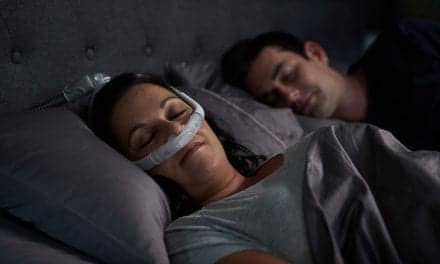Hospitalized patients evaluated for sleep apnea who received treatment for the condition had notably lower rates of emergency complications leading to rapid response events in a study.
Patients identified as high risk for obstructive sleep apnea (OSA) through a screening questionnaire were more likely to experience complications necessitating rapid response mobilization, including sudden and significant changes in blood pressure, heart rate, respiratory rate or mental status; seizures; and symptoms of stroke.
High-risk patients treated with positive airway pressure (PAP) therapy were less likely to experience events leading to rapid response mobilization than high-risk patients who were noncompliant with PAP therapy (rate per 1,000 admissions, 16.99 versus 53.40; P<0.01), researcher Sunil Sharma, MD, of Thomas Jefferson University Hospital, Philadelphia, and colleagues wrote in the journal PLOS ONE.
“We were somewhat surprised that retrospectively we found a much higher rapid response system (RRS) rate in the high-risk patients,” Sharma told MedPage Today. “The burden of co-morbid diseases like congestive heart failure and hypertension was also higher in these patients, so this finding doesn’t prove that sleep apnea was responsible. But the significant reduction in rapid response system (RRS) events seen in high-risk and treatment-compliant patients is highly suggestive of this association.”









